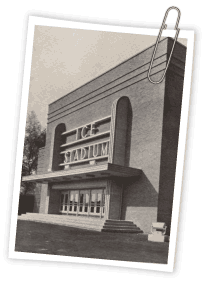
A Trip Through History
Original Era

The dream of an ice hockey team in Nottingham has been in the offing since 1939 with the creation of the Ice Stadium in the city centre. The team, made up of Canadian imports, were due to take part in the 1939-40 English National League season. Sadly, they were sent back almost as quickly as they arrived with the outbreak of the Second World War.
However, after the War, a second attempt to create a team proved more fruitful. Seven years after the first effort, in 1946, Les Strongman and eleven colleagues boarded the SS Aquitania on a journey that would change the face of sports in Nottingham.
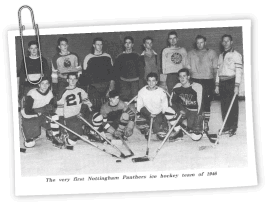
The early years however weren’t as successful as the recent past. Although their first competitive game ended with a 3-2 win over the Wembley Monarchs, it was not a precursor to continued success. Only once in the first four seasons did they finish in the top half of the table.
Fortunately, that did not stop the fans falling in love with the team. Forwards Les Strongman and Chick Zamick became local heroes in a football obsessed city, so much so that Zamick fought off legends like Tommy Lawton to become Nottingham Sportsman of the Year twice!
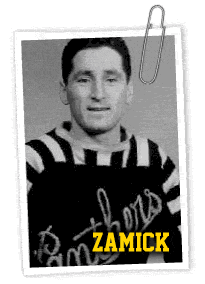
And in all fairness to Zamick, he deserved those plaudits. He arrived in Nottingham in a borrowed suit and with borrowed money in his pocket. The 5’7” centre was soon setting records. He scored his 100th goal inside a season and a half, his 200th goal in January 1950 and by January 1954 he was up to 500 goals.
Even back in 1946, it was clear though that the #PanthersNation was the greatest group of fans in the UK. Les said “Nottingham Panthers supporters are the best in the world and always have been. Even now, 54 years after playing in the opening season in Nottingham, I still see some familiar faces at the home games,".
With Zamick playing to the incredible standard he was, it would come as no surprise that it didn’t take the team too long to find success. A league title in 1950-51 saw the team as the highest scoring, and least conceding, side in the English League. Another title came to the Panthers in 1953-54 as well as 1955-56. The 55-56 season was the club’s most successful with them winning the Autumn Cup and League Title, all coming under the tutelage of, you guessed it, player-coach Chick Zamick.
That would be the last title win of the original Panthers with the league disbanding at the close of the 1960 season. Panthers hockey wouldn’t be seen in the city again for another two decades.
The Modern Era
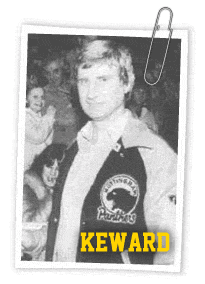
There had seemed little hope for ice hockey to return to Nottingham until Gary Keward fought tooth and nail to bring his Sheffield Lancers team to the city. After finally getting approval from the Ice Stadium Directors, the Nottingham Panthers were reborn in 1980.
With an old face behind the glass in Les Strongman the new Panthers started once again with a win. A 7-4 victory over Solihull Barons was the beginning for a season high on entertainment, but not so high in success.
In 1983 the British Hockey League reconstituted itself into the first truly national ice hockey league for 23 years, with Nottingham becoming one of nine founder members of the league's Premier Division. The Panthers were one of the best supported teams in the league with games regularly selling out but success on the ice eluded them. The team struggled against more established opponents such as the Durham Wasps and the Murrayfield Racers.
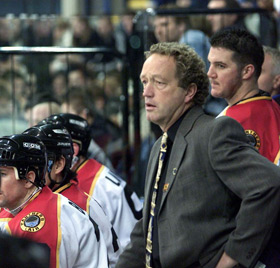
Things finally began to turn around however in 1985 when the Panthers brought in Alex Dampier as a coach. With Tony Johnson as manager and Alex Dampier well into his first stint behind the Panthers bench, a new hockey revolution took place some ten years after Keward had brought the sport back to Lower Parliament Street.
At a time when teams were limited to three ‘imports’, it was almost a tradition that teams entertained their fans by bringing over a big Canadian defencemen and two forwards. Dampier had other ideas. He installed not one, but two blueliners from Canada. Darren 'Doc' Durdle and Terry Kurtenbach patrolled the defensive zone for the Panthers. Durdle would rush the puck at every opportunity and fans favorite John Bremner would drop off the wing to cover as Durdle raced up the ice. It was a simple game plan but it worked to perfection.
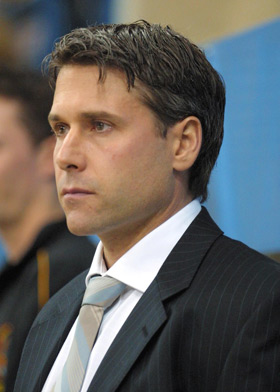
1988-89 saw Dampier’s carefully designed plans finally pay off. With imported forward Paul Adey helped by those rushes of Durdle and solidity of defence provided by Kurtenbach, the Panthers booked their place in the Wembley Heineken Finals for the first time ever. Favourites Whitley were brushed aside on the Saturday and Sunday Ayr had little answer to the Panthers' tactics. It was Panthers first big win since the fifties. Winger Gavin Fraser said in the hospitality bar afterwards: "We don't want to watch the tape, in case we lose it second time around!".
With the departure of Dampier in 1992-93 the Panthers has to wait a couple of years for the 1994-95 season and the arrival of Mike Blaisdell to taste glory again. But once the trophies started to flow, they wouldn’t stop for a while. Blaisdell assembled a strong side and began to dominate the Benson & Hedges cup, winning it 3 of the next 5 years. Unfortunately, the league title continued to elude the Panthers with great starts to the season arrested by poor endings.
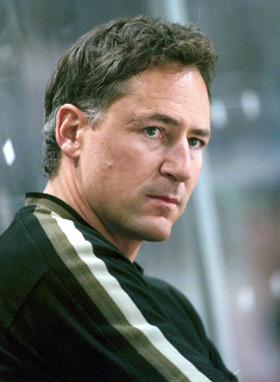
1996 saw the Panthers help in the birth of the Ice Hockey Superleague. This new league abolished wage caps and restriction on Non-UK trained players seeing a huge of influx of North American imports. That inaugural season saw the Panthers win the Benson & Hedges cup again, finish fourth in the league and lose out in the final of the Play-offs to the Sheffield Steelers.
1997 saw yet more upheaval for the Panthers with them being sold to Neil Black, the current owner, and they signalled their intentions by signing one of their strongest ever line-ups for the 1998-99 season with some incredible scoring statistics: Paul Adey and Greg Hadden scored 141 points between them, four players scored more than 20 goals, six players earned more than 30 assists and seven players achieved 30 or more points. Once again however the only silverware to grace the Panthers trophy shelf was the Benson & Hedges cup. This silverware was the last the Panthers would taste for over half a decade.
The National Ice Arena Move
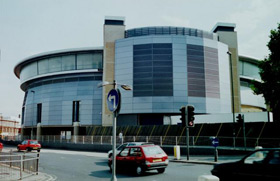
September 2000 saw the Panthers move to their current home at the National Ice Centre, however that first season didn’t feature many highlights.
2003 saw the collapse of the Superleague and a tumultuous time for the participating teams. With uncertainty over the future of the club, the Panthers became one of the founding member of the news Elite Ice Hockey League. The first season of the EIHL saw the Panthers finish second in the league and claim their first silverware since 1998, the Challenge Cup, by beating the Steelers in a final for the first time in 8 years. The Panthers also had a strong play-off campaign but slipped to a narrow defeat to the Steelers in the final.
2004-05 wasn’t a strong season for the Panthers and only when it came to the play-offs did the team find form again, qualifying for a second play-off final which once again ended in defeat. However, the club also took part in the Continental Cup and gave a strong showing, narrowly missing out on qualifying for the second round on goal difference.
2006-2008 saw the Panthers win major silverware in back to back seasons for the first time in their history with the club lifting their first play-off title in 18 years with their second challenge cup victory the year after. Both of those were won under the guidance of Mike Ellis, the last coach of the Nottingham Panthers until the steady hand of Corey arrived.
The Corey Neilson Era
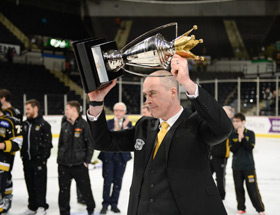
Two consecutive third place finishes in the 08-09 and 09-10 seasons was a consistent start for the legendary number 77 and a Challenge cup trophy in 09-10 capped a great way to begin his coaching career. 2010-11 started very strongly for the boys in black and gold but a big stutter midway through the season saw them fall out of contention for the league. However, they were able to pull themselves back to defend the Challenge Cup and win the play-off cup.
2012-13 saw a lot of player turnover and initially that didn’t work out too well for the team. However shrewd re-signings by Neilson and his ability to take advantage of the NHL lockout saw form begin to improve. Following a shootout win over Cardiff, Nottingham took the top spot and never surrendered it. The Nottingham Panthers had finally won their first league title in 57 years on the 15th of March 2013. This was followed by a Challenge Cup win over Sheffield to retain the trophy for a fourth consecutive season. Finally, Nottingham took on the Belfast Giants in the play-offs final, sealing the win in overtime. The Panthers had achieved the unthinkable and won a Grand Slam.
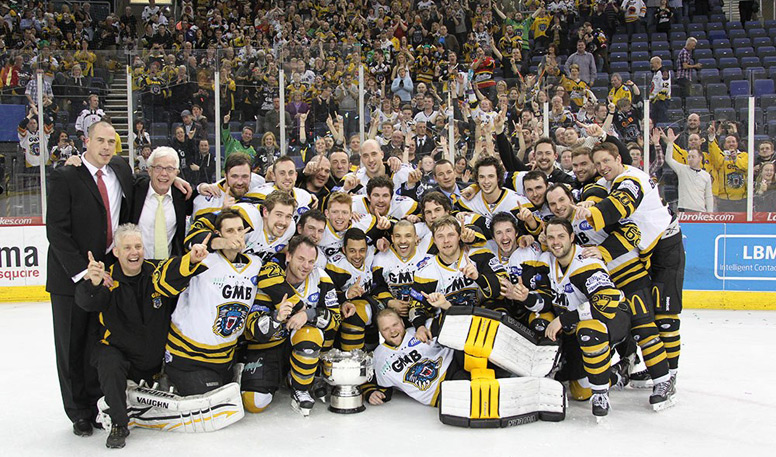
Unfortunately, the 2013-14 season brought the Panthers crashing back down to the ground with high player turnover and injuries restricting Nottingham to fourth place in the EIHL. The season did however play host to one of the greatest final series’ in Panthers history. They once again reached the Challenge Cup final, but were considered outsiders against a Belfast Giants team that comfortably won the league championship and finished 32 points ahead of Nottingham. The Panthers lost the first leg 5–2, a result that left the Giants as strong favourites to lift the cup. However, the Panthers won the second leg 4–1 to level the tie and force overtime. When that finished goalless, goaltender Craig Kowalski saved all three Belfast penalty shots and Petr Kalus scored to give the Panthers a 7–6 aggregate victory and a fifth consecutive Challenge Cup.
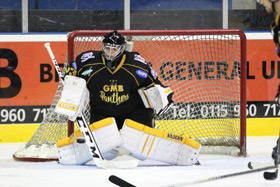
Four-line hockey was introduced in 2015-16 which brought success for Corey Neilson and his squad. The first silverware of the season was conquered after a nail-biting overtime thriller which saw Evan Mosey score the only goal of the Challenge Cup final. The team went on to finish the season with a second trophy by winning the playoff final that marked the end of a double championship season.
Continental Cup Campaign
The 2016-17 season will be forever remembered as a history making one for the GMB Nottingham Panthers. The team became the first British squad to win a European title, as the Panthers became Continental Cup Champions of Europe 16-17.
The incredible achievement saw them qualify once again for the Champions Hockey league, where they will take on SC Bern, HK Mountfield and TPS Turku and try and create another European memory.
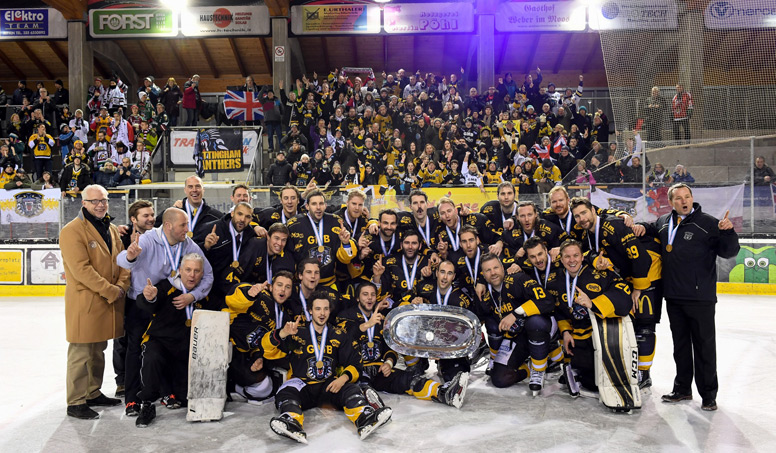
History Makers
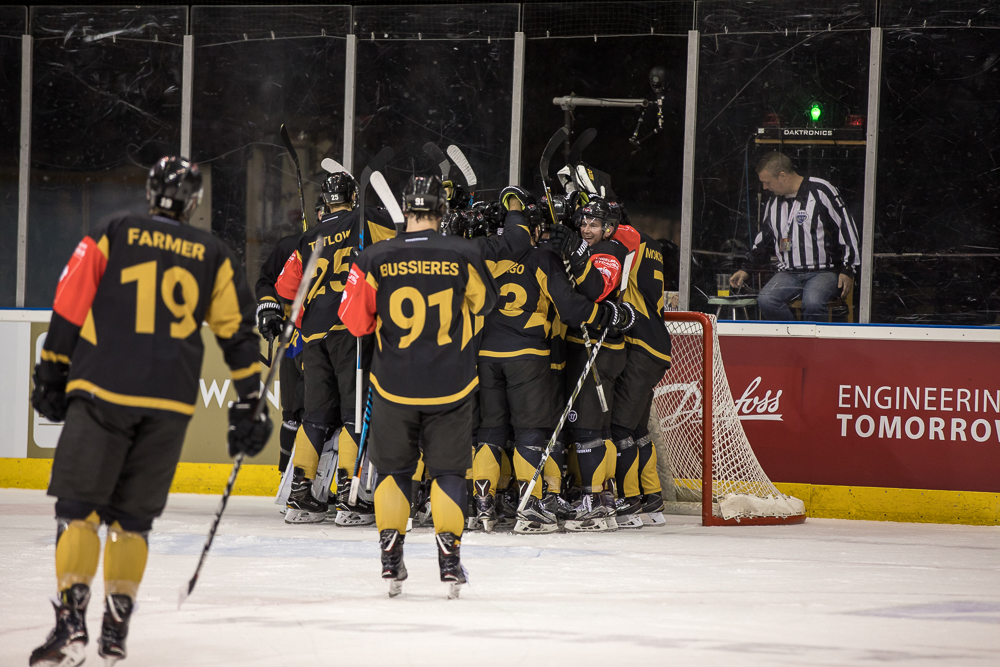
The 2016-17 season will be forever remembered as a history making one for the GMB Nottingham Panthers.
The team became the first British squad to win a European title, as the Panthers became Continental Cup Champions of Europe 16-17.
The incredible achievement saw them qualify once again for the Champions Hockey league, where they took on SC Bern, HK Mountfield and TPS Turku.
Panthers re-wrote the record books again winning four games in a row to top their group from a seeding of 32nd out of 32 teams in the competition.
It meant Britain had a team in the knock-out stages of the CHL for the first time ever.
The End of an Era
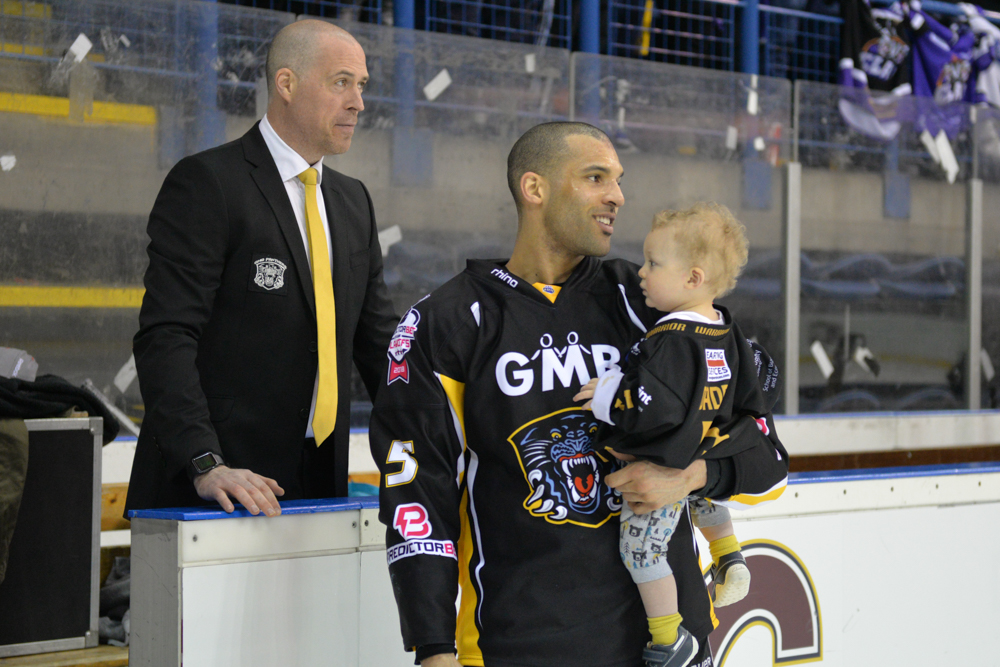
There was a knock-on effect on the outcome of the domestic season but it ended on something of a high as the club reached the play-off finals weekend only to be dramatically knocked out at the semi-finals stage.
Disappointing as that was, it allowed the club to stage an emotional farewell to coach Corey Neilson and retiring legend British forward David Clarke at the third-place-play-off match.
The pair, whose departures were in no way linked, left the club with a mountain of memories to dwell on for years to come.
The role of head coach at the Panthers was taken by Canadian Rich Chernomnaz but his time was short-lived. He put together a roster that looked exciting on paper but didn’t deliver on the ice where it counts. He left in January 2019 and assistant coach Rick Strachan took over to steer the club to a third place finish in both league and play-offs.
Always looking to innovate the way things are done the club took a leaf out of the European model and appointed former player Gui Doucet as Director of Hockey and he in turn appointed former Milton Keynes coach Tim Wallace to join him in masterminding the next chapter in the club’s history.
Before their first season got underway though the sad news came through from Canada that club legend Les Strongman a player and coach in Nottingham in two different eras had passed away just short of his 96th birthday. As the new campaign was about to launch, fans had a reason to look back on a star of the past and his contribution to the club’s rich history.
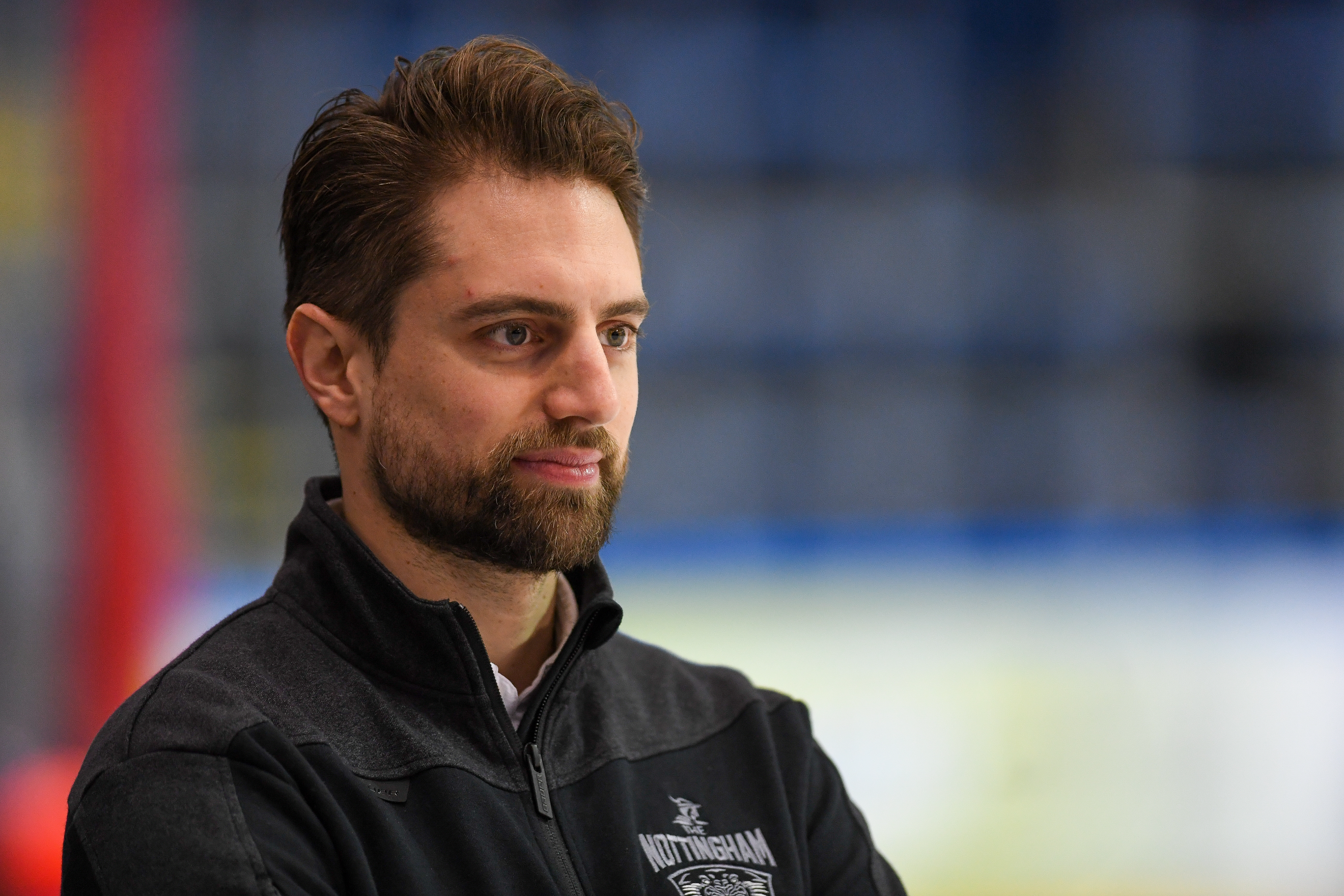
An indifferent opening set of results in the new campaign (2019-20) hampered the start of the Doucet/Wallace era but some judicious signings along the way helped to turn the results around and the club came within a cat’s whisker of repeating their Continental Cup success of a few seasons earlier when they twice visited Denmark for the semi-final and final rounds and ended up with the runners-up spot.
Domestically, the season ground to a halt when the invisible opposition that is coronavirus swept the world, catching up with the Elite League at a time when mathematically five teams, including the Panthers, were still in the running.
The season ended abruptly with no championship decided and no play-offs even played.
Ice hockey, like all sports and all walks of life, must press the reset button and look to the future.
Elite Series
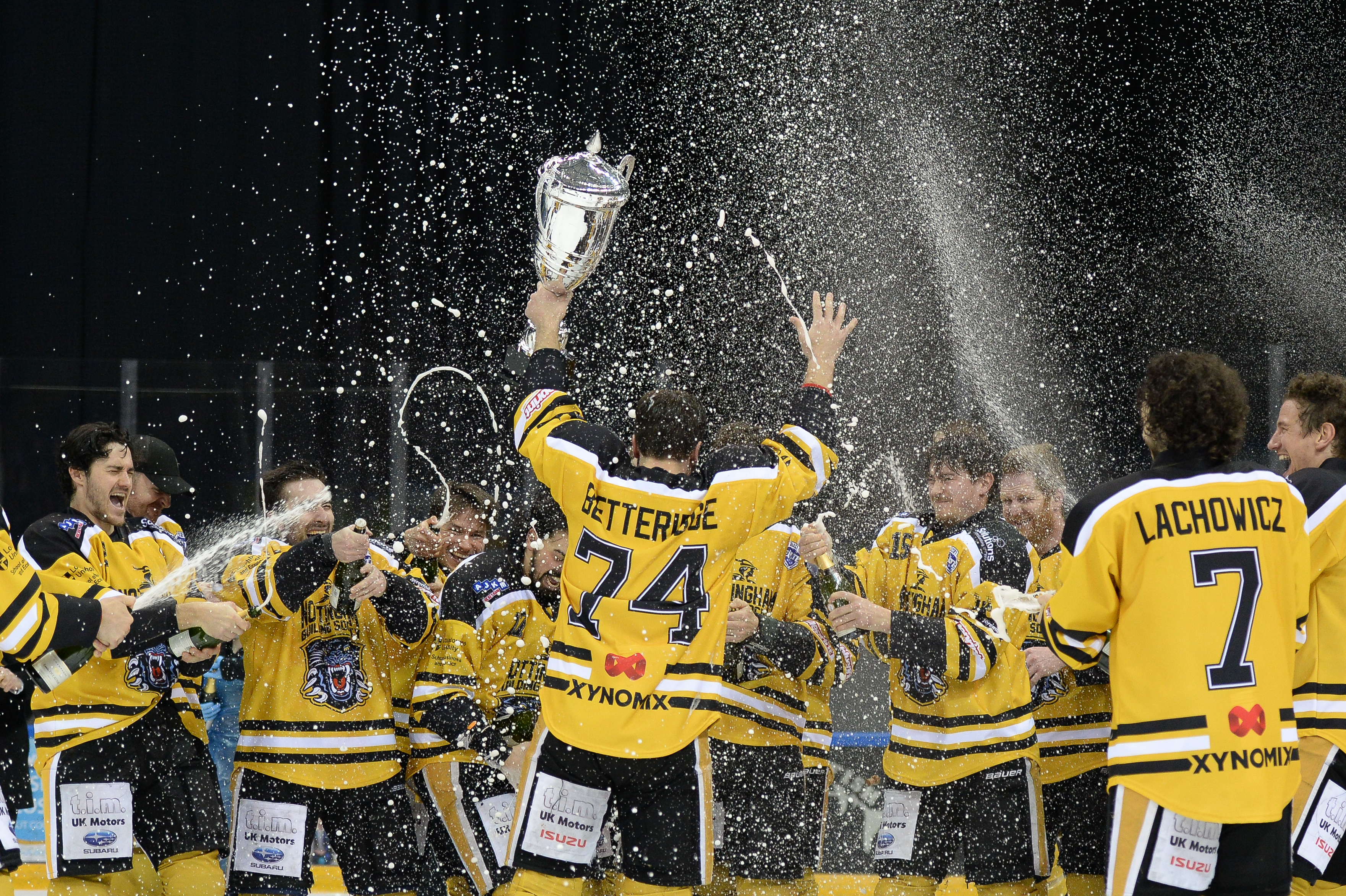
There was to be no regular 2020-21 season but some of the clubs, Nottingham included, kept pressing for support and with it action that eventually came in the form of the unique Elite Series which saw four teams, Nottingham, Sheffield, Coventry and Manchester battle it out over five weeks in a top flight championship event.
The teams had extra British players (drafted in from other clubs and so giving GB internationals valuable ice-time ahead of the World Championships) plus a hotbed of foreign talent.
Fans were not allowed in at the National Ice Centre in Nottingham because of pandemic restrictions but thousands watched the live webcasts from rinkside through April and early May.
The tournament culminated in a spectacular victory for Nottingham when in the first ever best-of-three finale to any hockey event in the UK the Panthers swept their arch-rivals Sheffield with 5-3 and 5-2 victories meaning there was no need for a deciding third game and the Panthers name was etched onto the glittering trophy at the end of an event that had proved to those inside and outside the sport that ice hockey was back on the map.
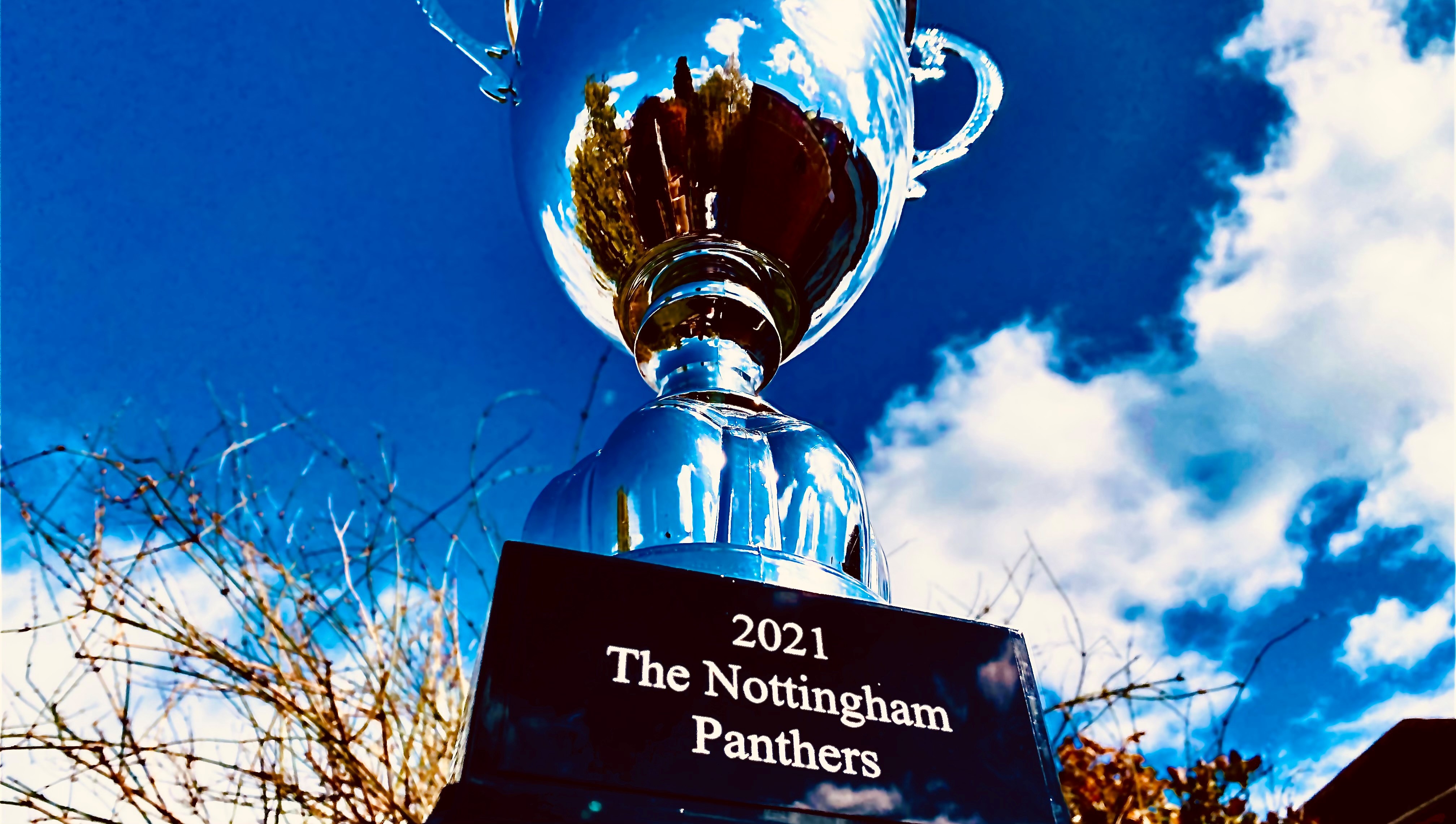
Changing of the Guard
After the Elite Series The Nottingham Panthers were riding high & hoping to challenge for more honours in 2021/22 when ice hockey returned with fans in attendance.
Unfortunatley inconsistencies in Nottingham's game saw hopes of a league title challenge evaporate before the end of December and in early January Head Coach Tim Wallace was relieved on his duties.
More inconsistencies, and an ever growing injury list, meant interim Head Coach Mark Matheson didn't fare much better at the helm and after a disappointing campaign the Panthers also parted ways with Director of Hockey Gui Doucet after three seasons in charge.
Omar Pacha was brought in as the organisation's new C.E.O. ahead of the 2022/23 season and Nottingham are looking to get back to where they belong when the team hits the ice once again.





